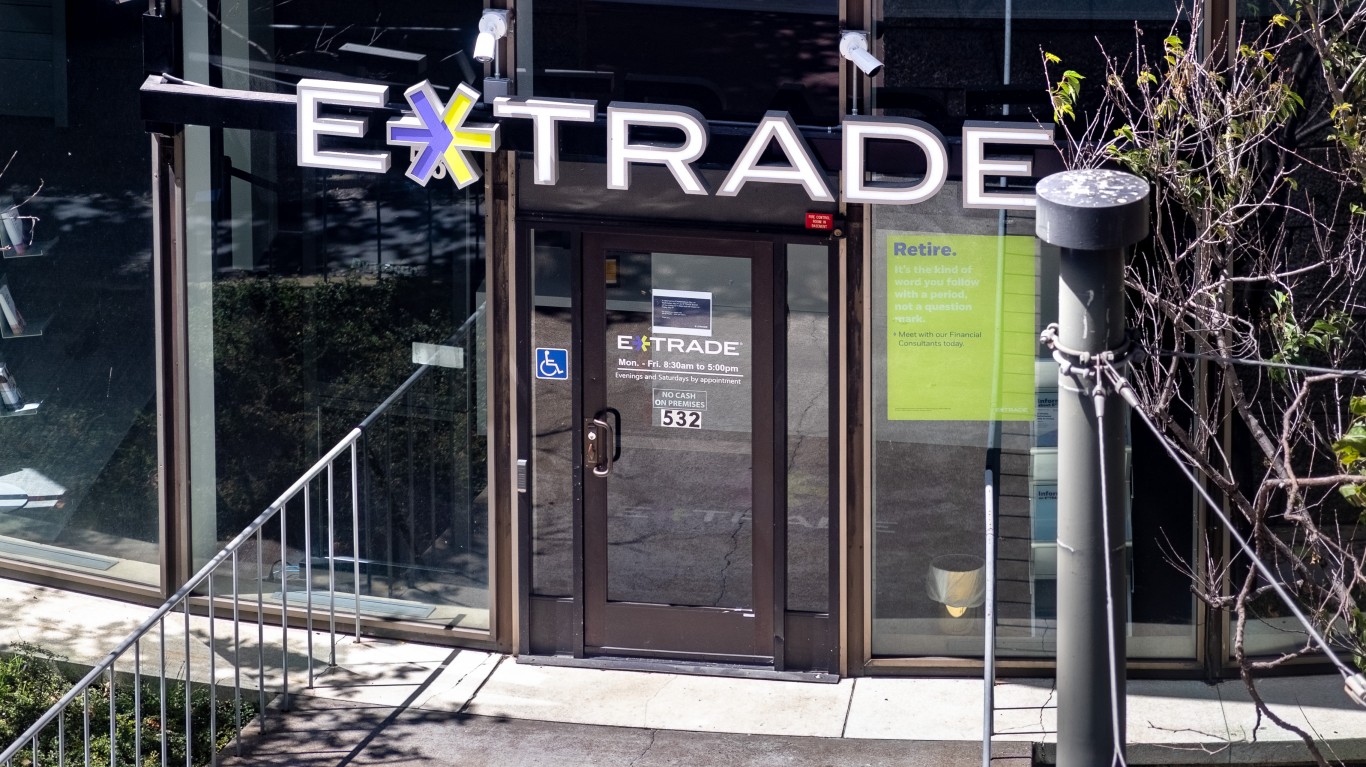

Earnings season is upon us, and this quarter will see more or less the full impact of the COVID-19 pandemic. Although the Dow Jones industrial average and S&P 500 have mostly stabilized since the onset of the outbreak, concerns about earnings remain. Most investors have pushed out their targets to next year, essentially writing off 2020. This may explain current valuations.
Bank stocks traditionally kick off earnings season and play a large role in gauging the temperature for how the rest of the season may go. While practically all stocks are measured based on their earnings, debt and assets, veteran investors take this into account, but there’s another perspective to consider for bank stocks in particular.
Book value per share is a metric many use in evaluating these stocks. It basically breaks down to a firm’s net asset value, or total assets minus total liabilities, on a per-share basis. So if a stock is undervalued, it would have a higher book value per share relative to its current stock price in the market.
The Financial Select Sector SPDR Fund (NYSEARCA: XLF) has lagged the market recovery, and it tracks most of the big banks and financial firms. A handful of major banks are set to report this week, and if a recovery is in the works for these major financial institutions, this may very well be when the signs appear.
These banks are lagging for a number of reasons. The pandemic has resulted in significant job losses across the country, which has investors concerned that there could be higher credit card losses and charge offs at banks. Note that there is also dividend risk at these banks as well, meaning that if dividends are cut, the stock price may fall to reflect the lower payout or elimination of the dividend.
Back to book value: considering that banks are lagging the broad markets, it is safe to say that their book values are outpacing their respective stock prices. Even though it might look bad on the surface that U.S. banks may be undervalued by this metric, comparatively, European bank stocks are trading at an even steeper discount to book value. This can be attributed largely to the current global recession.
As for the U.S. banks, 24/7 Wall St. has picked out a handful that are currently trading at a discount to book value going into this earnings season.
Bank of America Corp. (NYSE: BAC) has the largest market cap out of this group, a whopping $197 billion. It pays a 3.0% dividend as well. On a price-to-earnings basis, this stock trades with a multiple of 9.8, and its price-to-book ratio is 0.88. Book value per share is $27.84, and tangible book value per share is $19.79. Bank of America stock closed Friday at $24.02, in a 52-week range of $17.95 to $35.72. The consensus price target is $28.53.
Citigroup Inc. (NYSE: C) pays a dividend of 3.9% and has a market cap of $103 billion. In terms of its multiples, price-to-earnings comes in at 7.2 and price-to-book is 0.63. Book value per share is $83.75, and tangible book value per share is $71.52. Citigroup stock closed Friday at $52.65, in a 52-week range of $32.00 to $83.11. The consensus price target is $69.25.
Wells Fargo & Co. (NYSE: WFC) should be higher on the list in terms of the market cap, but its stock has lost about 52% year to date. It currently has a market cap of $98 billion and pays a dividend of 8.0%, although it was previously announced that Wells Fargo would be cutting its payout. The stock trades with a price-to-earnings multiple of 9.0 and a price-to-book ratio of 0.65. Book value per share is $39.71, and tangible book value per share is $32.90. Wells Fargo stock closed Friday at $25.47. It has a 52-week range of $22.00 to $54.75 and a consensus price target of $29.93.
Truist Financial Corp. (NYSE: TFC) has a market cap of $45 billion and its dividend yields 5.1%. This stock trades with a price-to-earnings ratio of 10.0 and a price-to-book of 0.77. Truist Financial stock closed Friday at $35.20, with a 52-week range of $24.01 to $56.92. The consensus price target is $43.05.
Fifth Third Bancorp (NASDAQ: FITB) has a total addressable market cap of $12 billion and a dividend yield of 5.9%. The price-to-earnings ratio is 8.1 and the price-to-book ratio is 0.65. Book value per share is $28.26, and tangible book value per share is $22.02. Fifth Third stock closed Friday at $18.39, in a 52-week range of $11.10 to $31.64. The consensus price target is $22.08.
KeyCorp (NYSE: KEY) has the smallest market cap of this group, at nearly $11 billion. It has a 6.4% dividend yield too. The price-to-earnings multiple is 8.6. The price-to-book multiple is 0.82. Book value per share is $15.95, and tangible book value per share is $12.98. KeyCorp stock closed Friday at $11.55, in a 52-week range of $7.45 to $20.53. It has a consensus price target of $13.59.
Smart Investors Are Quietly Loading Up on These “Dividend Legends” (Sponsored)
If you want your portfolio to pay you cash like clockwork, it’s time to stop blindly following conventional wisdom like relying on Dividend Aristocrats. There’s a better option, and we want to show you. We’re offering a brand-new report on 2 stocks we believe offer the rare combination of a high dividend yield and significant stock appreciation upside. If you’re tired of feeling one step behind in this market, this free report is a must-read for you.
Click here to download your FREE copy of “2 Dividend Legends to Hold Forever” and start improving your portfolio today.
Thank you for reading! Have some feedback for us?
Contact the 24/7 Wall St. editorial team.



